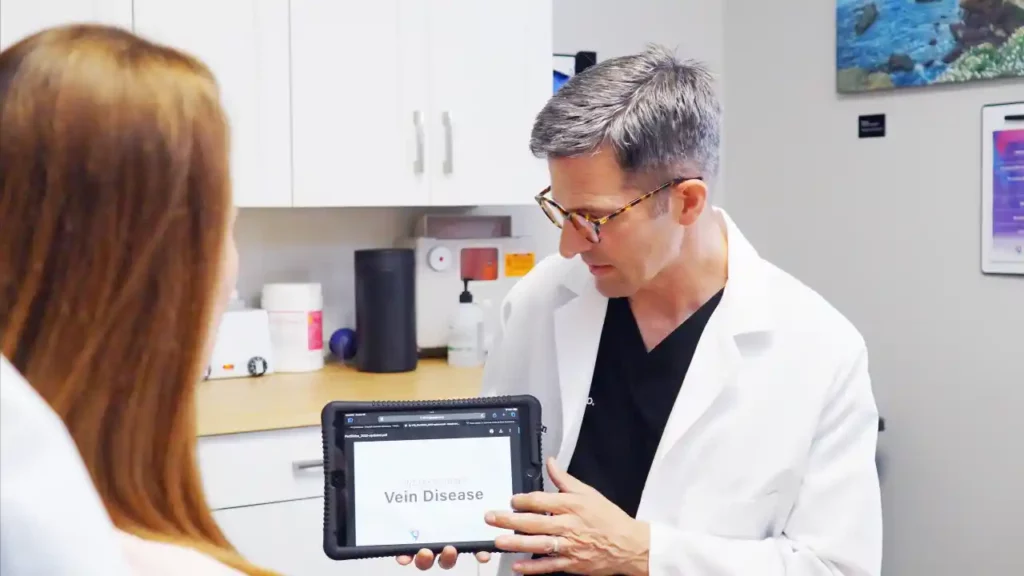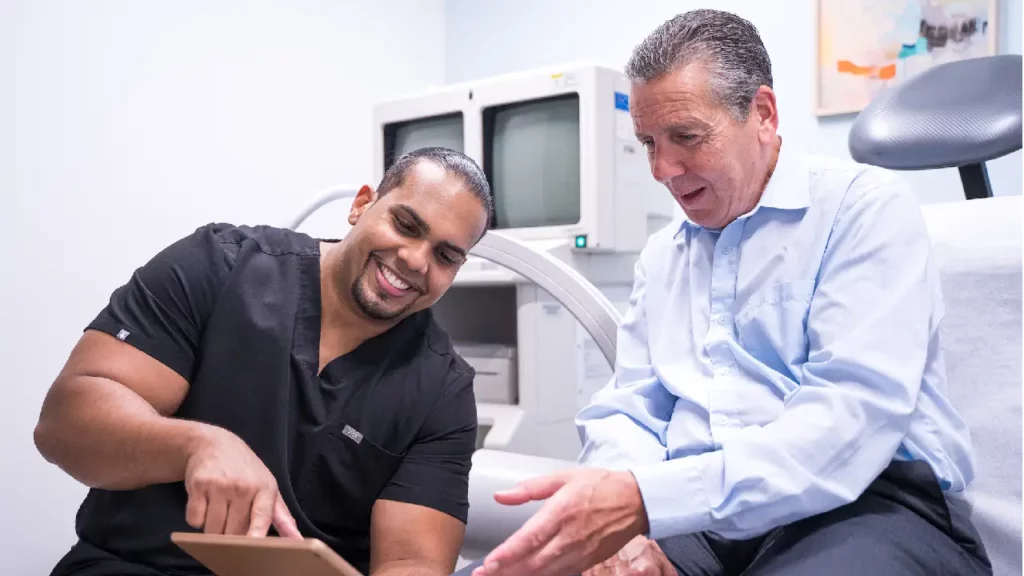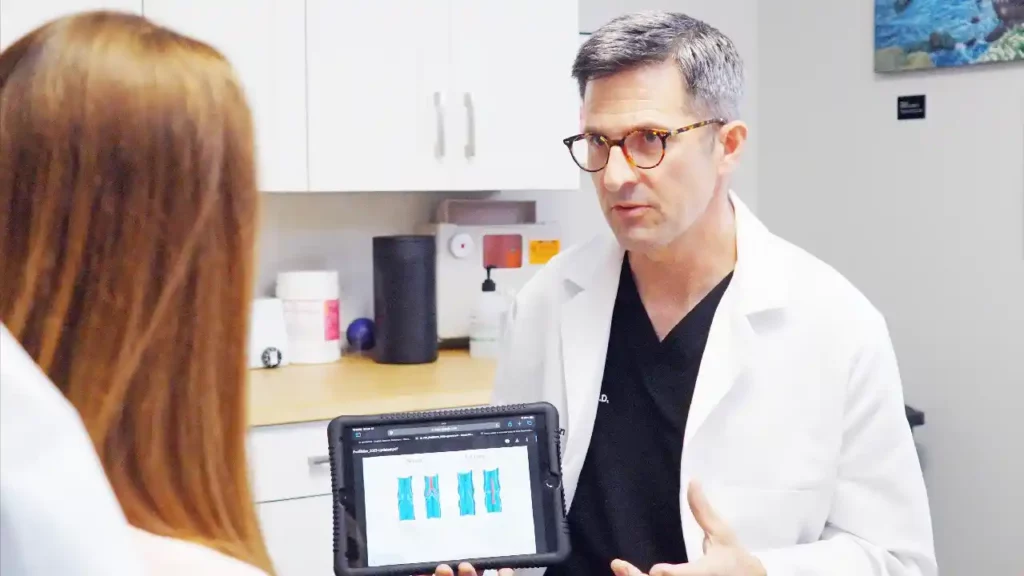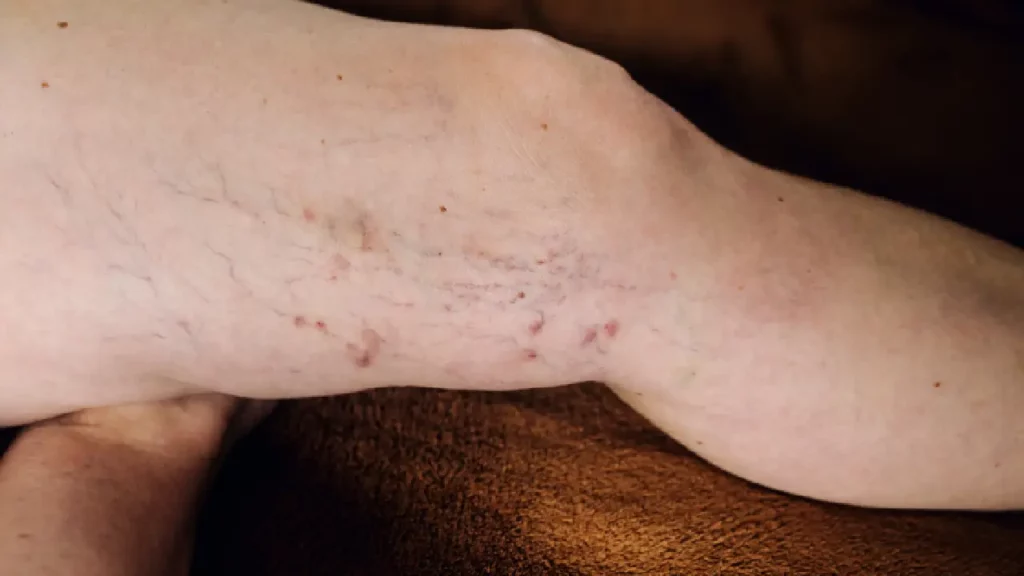When to Worry About Varicose Veins? Don’t Wait Too Long!
You’ve had a long day at work, and by the time you get home, your legs feel heavy and achy. You sit down, pull up your pant leg, and notice blue or purple veins bulging slightly beneath the skin. Maybe you’ve brushed it off before, thinking it’s just a sign of aging, but the discomfort is becoming hard to ignore. Should you be concerned? You’re not alone. Many women experience varicose veins, but not all know when to seek treatment.
At Vein Doctor for Women, we believe it’s important to understand when varicose veins are more than a cosmetic concern. Untreated varicose veins can lead to more serious complications if ignored for too long. In this article, we’ll help you identify when to worry about varicose veins, explain potential risks, and introduce treatment options that can prevent further health issues. If you’ve been wondering if your varicose veins are a real health concern, read on!
What Are Varicose Veins?
Varicose veins are enlarged, twisted veins that typically appear on the legs. They’re caused by weak or damaged valves within your veins, which prevent blood from flowing efficiently back to the heart. When blood pools in the veins, they swell and become varicose. While varicose veins and spider veins can sometimes appear just as cosmetic issues, they’re often signs of underlying venous insufficiency—a condition where blood struggles to circulate properly.
Spider veins are the smaller, red, or blue lines that appear just beneath the skin’s surface, often resembling spider webs. They’re usually harmless but may also signal venous insufficiency, especially when accompanied by varicose veins. Whether you’re dealing with mild or more severe symptoms, it’s essential to know when to take them seriously.
Warning Signs: When Should You Be Concerned?
It’s easy to dismiss varicose veins as a normal part of life, but certain signs indicate it’s time to consult a specialist. If you notice any of the following symptoms, it’s time to worry about varicose veins and seek medical advice:
- Persistent Leg Pain or Heaviness: Do your legs feel heavy, especially after standing or sitting for long periods? This is a common sign of venous insufficiency. When your veins aren’t circulating blood properly, your legs may feel tired or swollen by the end of the day. Over time, this heaviness can turn into persistent pain, which shouldn’t be ignored.
- Swelling in the Legs, Ankles, or Feet: Swelling often accompanies varicose veins when blood pools in the lower limbs. If you notice your legs, ankles, or feet are constantly swollen, it may indicate a more serious issue with your circulatory system.
- Itching or Burning Sensation: Varicose veins may cause the skin around them to become itchy or irritated. This is more than just a minor annoyance; persistent itching can be a sign of vein inflammation or even early stages of skin ulcers.
- Skin Discoloration or Ulcers: When varicose veins are left untreated, they can cause long-term skin changes. Darkening of the skin or the appearance of ulcers near the ankles are signs of advanced venous insufficiency. Skin ulcers are open sores that can become infected, leading to more severe complications.
- Bleeding or Blood Clots: In rare cases, varicose veins may rupture and bleed, especially if they’re close to the skin’s surface. More concerning is the risk of deep vein thrombosis (DVT)—a serious condition where blood clots form in the deep veins of the leg. If you experience sudden, sharp pain or swelling in your leg, seek immediate medical attention.
If you recognize any of these warning signs, don’t wait too long to seek help. Early intervention can prevent complications and improve your quality of life. Contact us to schedule a consultation with a vein doctor at one of our many state-of-the-art locations.
Risks of Untreated Varicose Veins
Untreated varicose veins can lead to a range of complications, from chronic pain to more serious health conditions. Here are some potential risks of ignoring varicose veins:
- Chronic Pain and Discomfort: The aching and heaviness associated with varicose veins may worsen over time, making daily activities more difficult. As veins continue to enlarge, the pain can become constant.
- Venous Ulcers: If left untreated, varicose veins can lead to skin ulcers, typically around the ankles. These sores can be painful and prone to infection, requiring medical treatment.
- Superficial Thrombophlebitis: Varicose veins can sometimes cause superficial thrombophlebitis, an inflammation of the veins beneath the skin. This is marked by redness, swelling, and pain in the affected area. While not life-threatening, it requires prompt treatment to avoid complications.
- Deep Vein Thrombosis (DVT): One of the most serious risks associated with varicose veins is DVT, a condition where blood clots form in the deep veins. DVT can lead to life-threatening complications if the clot travels to the lungs, causing a pulmonary embolism.
It’s clear that ignoring varicose veins can lead to significant health issues. Visit your nearest vein clinic to learn how you can prevent these complications.
Minimally Invasive Vein Treatment Options
Fortunately, you don’t have to live with the pain or risks of varicose veins. At Vein Doctor for Women, we offer a range of minimally invasive treatments that can help alleviate your symptoms and prevent further health concerns.
- Sclerotherapy: Sclerotherapy is an effective treatment for both spider veins and small varicose veins. During this procedure, a solution is injected into the affected vein, causing it to collapse and eventually disappear. While it’s often considered cosmetic for spider veins, if you’re diagnosed with venous insufficiency, sclerotherapy may be covered by your insurance.
- Endovenous Laser Ablation (EVLA) and Radiofrequency Ablation (RFA): EVLA and RFA are two advanced procedures that use heat to close off varicose veins. Both treatments involve inserting a thin catheter into the vein, using either laser energy (EVLA) or radiofrequency (RFA) to seal the vein shut. These minimally invasive techniques are performed under local anesthesia and have a quick recovery time.
- VenaSeal: VenaSeal is a cutting-edge treatment that uses medical adhesive to close varicose veins. This non-thermal procedure doesn’t require heat or tumescent anesthesia, making it a comfortable and effective option for many patients.
- ClariVein: ClariVein combines mechanical and chemical ablation to treat varicose veins. A rotating catheter delivers a solution to the affected vein, causing it to collapse. This procedure is fast and minimally invasive, with little discomfort.
- Ambulatory Phlebectomy: For larger varicose veins, ambulatory phlebectomy may be recommended. This procedure involves making small incisions to remove the veins directly. Like the other treatments, phlebectomy is minimally invasive, and recovery is quick.
We offer all of these treatments at our vein clinics across New York, Long Island, California, Maryland, and New Jersey. Learn about our vein treatments and see which is right for you.
Insurance Coverage for Vein Treatments
Worried about the cost of vein treatment? You’ll be happy to know that most of our treatments are covered by medical insurance when deemed medically necessary. While spider veins are often considered cosmetic, their root cause—venous insufficiency—is typically covered. If your vein doctor diagnoses you with venous insufficiency, even treatments like sclerotherapy may be included in your coverage.
At Vein Doctor for Women, we offer insurance verification before your first appointment, so you’ll know exactly what’s covered.
If you’ve been wondering when to worry about varicose veins, the answer is simple: don’t wait too long. Early intervention is key to avoiding pain, complications, and more invasive treatments down the line. Contact us to request insurance verification or schedule a consultation at your nearest vein clinic.
